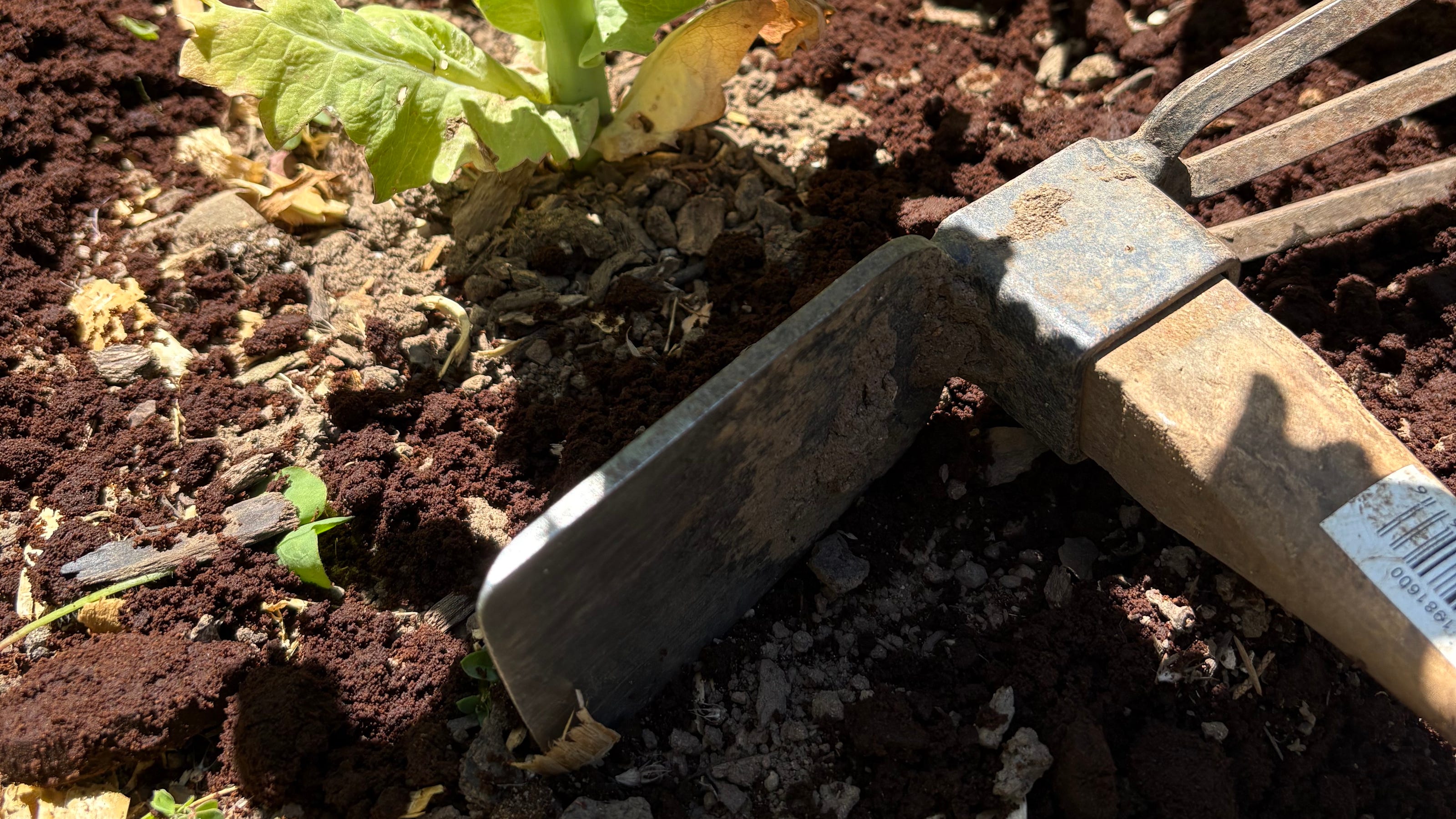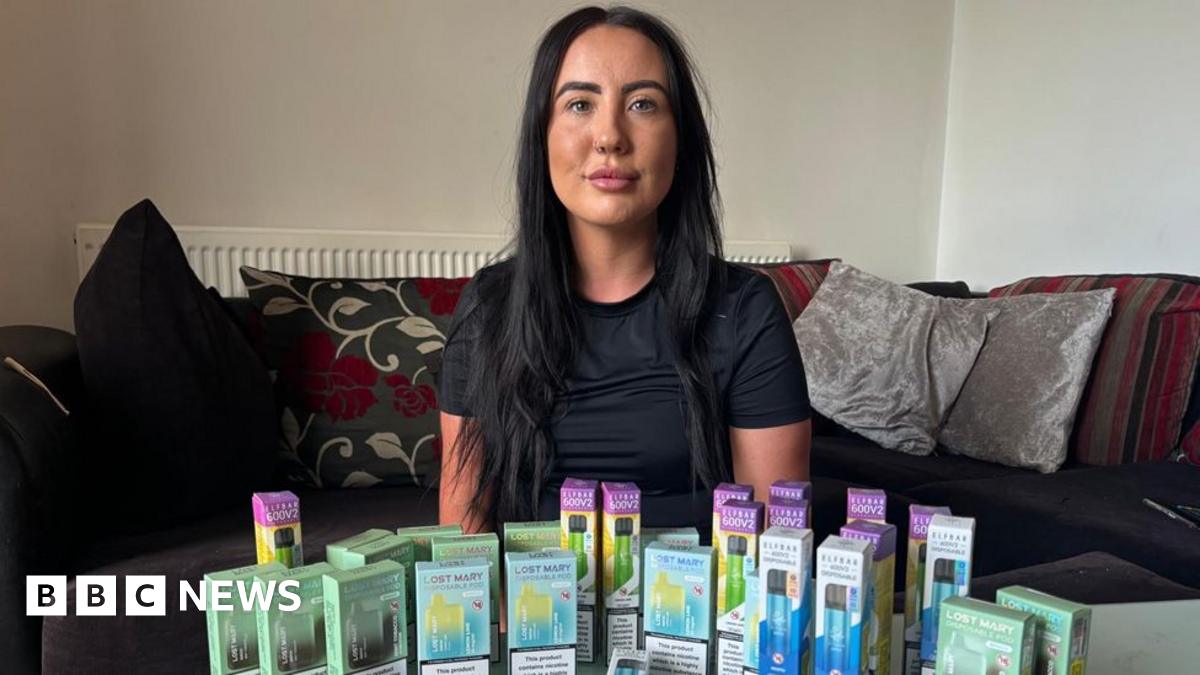Repurposing Coffee Grounds: Fertilizing Plants Safely

Welcome to your ultimate source for breaking news, trending updates, and in-depth stories from around the world. Whether it's politics, technology, entertainment, sports, or lifestyle, we bring you real-time updates that keep you informed and ahead of the curve.
Our team works tirelessly to ensure you never miss a moment. From the latest developments in global events to the most talked-about topics on social media, our news platform is designed to deliver accurate and timely information, all in one place.
Stay in the know and join thousands of readers who trust us for reliable, up-to-date content. Explore our expertly curated articles and dive deeper into the stories that matter to you. Visit Best Website now and be part of the conversation. Don't miss out on the headlines that shape our world!
Table of Contents
Repurposing Coffee Grounds: Fertilizing Plants Safely and Effectively
Are you a coffee lover with a green thumb? Don't toss those spent coffee grounds! This surprisingly versatile byproduct can be a fantastic, free fertilizer for your plants. But using coffee grounds effectively and safely requires understanding their properties and how best to incorporate them into your gardening routine. This article explores the benefits, cautions, and best practices for using coffee grounds as a plant fertilizer.
The Benefits of Coffee Grounds for Plants
Coffee grounds offer several advantages as a soil amendment:
- Natural Fertilizer: They're rich in nitrogen, phosphorus, and potassium – essential macronutrients for plant growth. While not as potent as commercial fertilizers, they provide a slow-release boost of nutrients.
- Improved Soil Structure: Coffee grounds add organic matter to the soil, improving its drainage and aeration. This is particularly beneficial for clay soils, helping to prevent compaction.
- Soil pH Modification: Coffee grounds are slightly acidic (pH around 6.5), making them ideal for acid-loving plants like blueberries, azaleas, and rhododendrons. However, it's crucial to monitor your soil's pH to avoid over-acidification.
- Pest Deterrent: Some studies suggest that the caffeine in coffee grounds can deter certain pests, although this effect isn't universally proven.
- Sustainable Gardening: Repurposing coffee grounds reduces waste and promotes environmentally friendly gardening practices.
Safely Using Coffee Grounds as Fertilizer: Things to Keep in Mind
While generally beneficial, using coffee grounds incorrectly can harm your plants. Here are some important considerations:
- Don't Overdo It: Too many coffee grounds can compact the soil, hindering drainage and oxygen flow to plant roots. Start with small amounts and gradually increase as needed.
- Monitor Soil pH: Regularly test your soil's pH to ensure it remains within the optimal range for your plants. Over-acidification can lead to nutrient deficiencies and stunted growth. You can purchase inexpensive soil testing kits online or at most garden centers.
- Avoid Fresh Grounds: Freshly brewed coffee grounds can contain high levels of caffeine, which can be toxic to some plants in large amounts. Let the grounds dry out for a few days before using them.
- Proper Mixing: Don't just pile coffee grounds on top of the soil. Mix them thoroughly into the soil to promote even distribution and prevent mold growth.
- Not for All Plants: While many plants benefit from coffee grounds, some are sensitive to their acidity. Research the specific needs of your plants before applying.
How to Use Coffee Grounds as Fertilizer
There are several ways to incorporate coffee grounds into your garden:
- Directly into the Soil: Mix dried coffee grounds into the soil during planting or as a top dressing. Start with a small amount (about 1/4 cup per plant) and gradually increase.
- Composting: Add coffee grounds to your compost pile to enrich the compost and improve its overall nutrient content. This is an excellent way to neutralize their acidity.
- Worm Composting: Coffee grounds are a great addition to worm composting systems, providing food for the worms and enriching the worm castings.
Conclusion: Embrace Sustainable Gardening Practices
Repurposing coffee grounds is a simple yet effective way to improve your garden's health and sustainability. By following these guidelines and understanding the specific needs of your plants, you can harness the benefits of this readily available resource. Remember to always monitor your soil's pH and avoid overusing coffee grounds. Happy gardening!
Keywords: coffee grounds, plant fertilizer, organic fertilizer, sustainable gardening, soil amendment, improve soil, gardening tips, coffee grounds for plants, acid loving plants, soil pH, composting, worm composting.

Thank you for visiting our website, your trusted source for the latest updates and in-depth coverage on Repurposing Coffee Grounds: Fertilizing Plants Safely. We're committed to keeping you informed with timely and accurate information to meet your curiosity and needs.
If you have any questions, suggestions, or feedback, we'd love to hear from you. Your insights are valuable to us and help us improve to serve you better. Feel free to reach out through our contact page.
Don't forget to bookmark our website and check back regularly for the latest headlines and trending topics. See you next time, and thank you for being part of our growing community!
Featured Posts
-
 Upcoming Disposable Vape Ban Fuels Stockpiling Concerns
May 26, 2025
Upcoming Disposable Vape Ban Fuels Stockpiling Concerns
May 26, 2025 -
 Public Display Of Affection Chris Hughes And Jo Jo Siwa Fuel Dating Speculation
May 26, 2025
Public Display Of Affection Chris Hughes And Jo Jo Siwa Fuel Dating Speculation
May 26, 2025 -
 I Os 18 5 5 Recommended New Features And 3 Bonus Discoveries
May 26, 2025
I Os 18 5 5 Recommended New Features And 3 Bonus Discoveries
May 26, 2025 -
 The Rise And Fall Of Jay Emmanuel Thomas Arsenal Star To Convicted Criminal
May 26, 2025
The Rise And Fall Of Jay Emmanuel Thomas Arsenal Star To Convicted Criminal
May 26, 2025 -
 Incident Macron Macron Decryptage De La Video Et Reaction De L Elysee
May 26, 2025
Incident Macron Macron Decryptage De La Video Et Reaction De L Elysee
May 26, 2025
Latest Posts
-
 Cricket News Jamie Smith To Open For England In Edgbaston Odi
May 30, 2025
Cricket News Jamie Smith To Open For England In Edgbaston Odi
May 30, 2025 -
 Como Criar Uma Festa Portuguesa Um Passo A Passo Detalhado
May 30, 2025
Como Criar Uma Festa Portuguesa Um Passo A Passo Detalhado
May 30, 2025 -
 Sinner Vs Draper Djokovics Dominance French Open Day 5
May 30, 2025
Sinner Vs Draper Djokovics Dominance French Open Day 5
May 30, 2025 -
 New Details Emerge In Diddy Sex Party Controversy Public Apology
May 30, 2025
New Details Emerge In Diddy Sex Party Controversy Public Apology
May 30, 2025 -
 Can The Senate Gop Pass Trumps Major Legislation A Close Look At The Strategy
May 30, 2025
Can The Senate Gop Pass Trumps Major Legislation A Close Look At The Strategy
May 30, 2025
